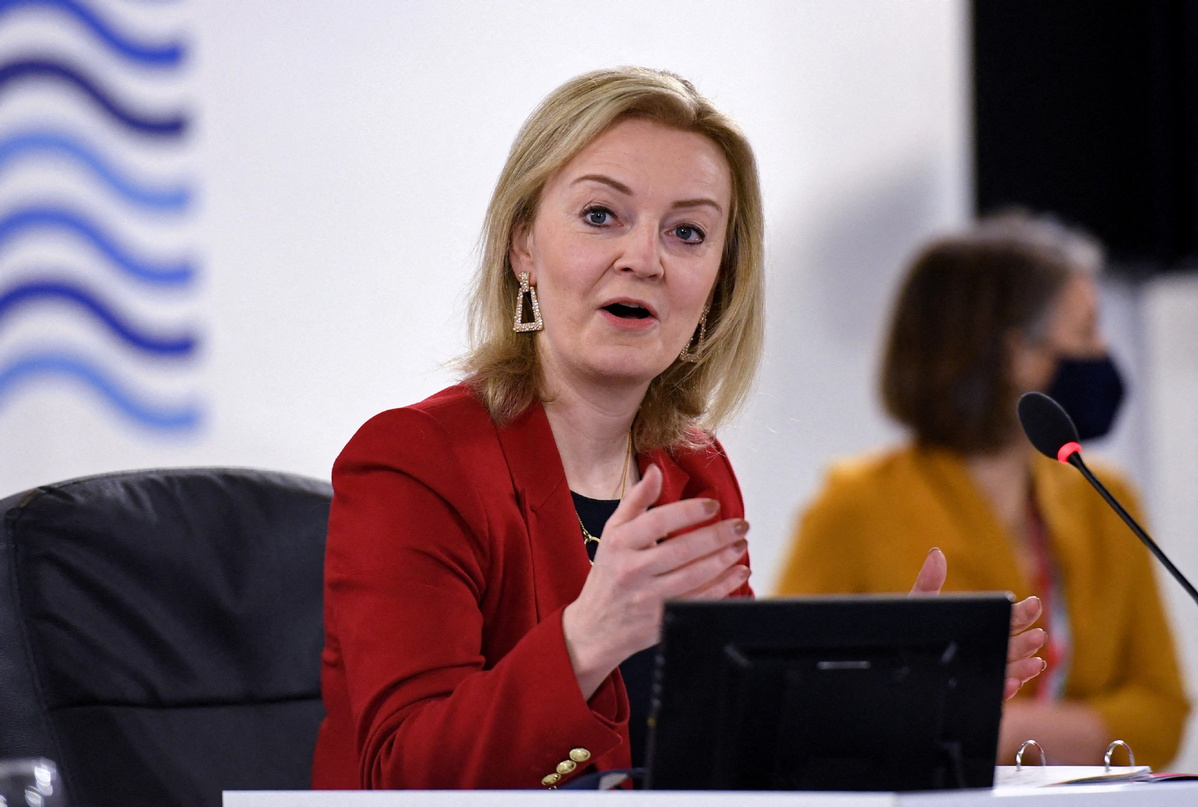New minister to take on UK/EU trade standoff
By JONATHAN POWELL in London | China Daily Global | Updated: 2021-12-22 09:04

Brussels welcomes appointment but cautions about problems recurring
The European Union welcomed the United Kingdom government's decision to appoint Liz Truss as its new chief post-Brexit negotiator, but has warned she faces the same problem as her predecessor in trade talks.
Truss, who is also the UK's foreign secretary, was due to speak with her EU counterpart Maros Sefcovic on Tuesday, to address the Northern Ireland Protocol, which governs the post-Brexit trade status of the province.
Truss, who supported the unsuccessful campaign to remain in the EU during the 2016 referendum, was given the job of negotiating with the bloc following the resignation of Brexit minister David Frost at the weekend.
"I want a comprehensive solution that delivers for the people of Northern Ireland and everyone across our great country," Truss said on Twitter.
There had been no EU-UK talks planned in the last days before Christmas, until the surprise resignation by Frost, reported the Irish Times.
Frost was understood to have become disillusioned with the direction of the UK government under Prime Minister Boris Johnson, noted Reuters news agency.
Officials in Brussels said they hope Truss will be a more "constructive partner" than Frost, but noted that she faces the same quandary as her predecessor: to compromise with Brussels or risk a trade war.
One EU official welcomed Johnson's decision to hand Truss the key role, reported the Financial Times.
"It's good the Foreign Office is getting involved again," an EU diplomat told the FT. "Let's give her the benefit of the doubt but I fear more of the same."
Another EU official said: "She is a politician where Frost was not, so perhaps she can get something out of a space where he was more destructive. But Boris Johnson calls the shots, so domestic UK politics will always dictate what happens."
European Commission's chief spokesman Eric Mamer said on Monday that the EU's stance remains the same. "Our position... particularly on the protocol, does not change depending on who is holding the position on the other side."
Northern Ireland is politically part of the UK but geographically on the island of Ireland. Both the UK and the EU seek to avoid a hard border with EU member state the Republic of Ireland, in order to protect the Good Friday Agreement and prevent a return to conflict. Brexit formally happened in January 2020. Following a transition period, the Trade and Cooperation Agreement came into force on Dec 31, 2020.
Under the Northern Ireland Protocol agreed, Northern Ireland effectively remains in the EU customs union and the single market for goods. Northern Ireland's Democratic Unionist Party, or DUP, has called for the protocol to be scrapped.
On Monday, Jeffrey Donaldson, the leader of DUP, told the BBC that he understood from Frost that the trade talks were failing to make progress. "He felt, I think, that we were fast approaching the time when the UK government needed to take unilateral action," Donaldson said.
























